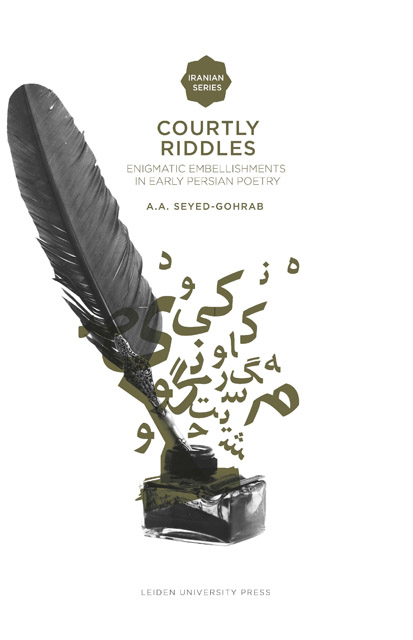Chapter One - The Eloquent Mute
Published online by Cambridge University Press: 19 November 2022
Summary
Who is it that's fetched from afar, and lurks behind the page?
He has tutored the student and murdered the sage.
The hunter pursues him all night without sleep,
When he has him, he gives him to all whom he meets.
STRUCTURE OF THE BOOK
The book consists of two parts. The first part has two chapters in which the theoretical framework about the nature of Persian riddles, composed between the tenth and the twelfth centuries, and their link with the genre of literary description (vaṣf) are examined. The first chapter (The Eloquent Mute) evaluates studies of Persian riddling poetry, and shows why an analytic and systematic study of Persian riddle poetry is a desideratum.
Chapter two (Inimitable Simplicity) starts with a discussion of the development of riddle poetry, treating various stylistic qualities of Persian poetry in specific periods, and showing the role of the literary riddle in the development of Persian poetry from its outset in the ninth century to the sixteenth century when poetic language as a whole became very ‘puzzling.’ The discussion in this section is continued in the next section “The riddle as defined in Persian poetical manuals” in which several classical definitions are analysed. It appears that there were several types of literary riddles in classical Persian, some of which, such as riddles in romances and in philosophical and mystical narratives, are never discussed by classical literary theorists. The descriptive poems which could easily be classified as riddles also escaped the attention of Persian literary theorists. In the section “From Metaphors to Riddles,” a detailed analysis of the relationship between the genre of ‘descriptive’ poetry (vaṣf) and riddling is offered, with special attention to the types of metaphors utilized in the two genres. Here, it is argued that metaphors are central to the genre of vaṣf, and descriptive poets seeking to contrive new metaphors and imagery to demonstrate originality made their metaphors, and then their descriptions, enigmatic. While folk riddles can be assumed to predate descriptive poetry, it would appear that the extended literary riddle in Persian poetry sprang out of the genre of vaṣf.
- Type
- Chapter
- Information
- Courtly RiddlesEnigmatic Embellishments in Early Persian Poetry, pp. 11 - 19Publisher: Amsterdam University PressPrint publication year: 2010



